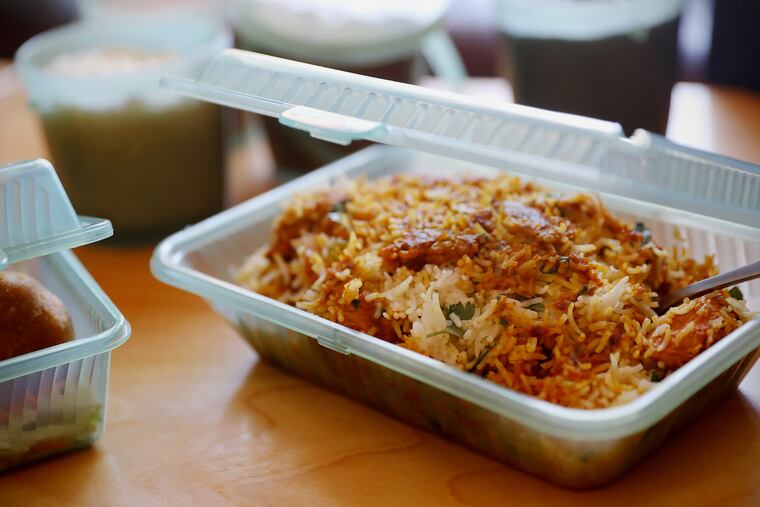Tiffin’s reusable takeout container program is praised by the city — and then shut down temporarily
Philadelphia halted a plan to reuse takeout containers because it needed a variance from the city Health Department. The containers are in use around the world with no headaches.

It seemed like a good idea.
Tiffin, the Indian restaurant chain with nine locations from Cherry Hill to Newtown Square, sought to reduce its use of plastic by offering special takeout containers meant to be returned and then sanitized.
The response to the Return2Tiffin program was immediate, said owner Munish Narula. Customers welcomed it from its start on March 22. The Inquirer published an article about it on April 26. The city’s Office of Sustainability — whose mission is a zero-waste city — liked the idea, too, reaching out to Tiffin for more information after getting tips from Councilman Mark Squilla and the city’s Commerce Department.
But on April 30, less than an hour after what Tiffin executive Marianne S. Kelly described as a positive call with an official of the Sustainability Office, an inspector from the city Department of Health showed up at Tiffin’s location in Mount Airy.
The inspector ordered the program to be shut down.
» READ MORE: Tiffin's plan to reuse takeout containers
Although these plastic containers are certified by both the Food and Drug Administration and the National Sanitation Foundation — and are used in food-service establishments around the world — they are not recognized for use by the City of Philadelphia. Return2Tiffin ran afoul of codes governing refilling returnables and washing returnable containers for refilling.
Narula and Kelly learned on May 4 that they would have to apply for a variance for the three Philadelphia locations, a $255 fee. The variance was approved May 19.
A city Health Department spokesperson confirmed the variance’s approval and said the department was committed to reducing waste and was working with the city Law Department to streamline the approval process.
The containers did not raise flags in jurisdictions other than Philadelphia. “For the life of me, I can’t figure it out,” said Narula, who said 10,000 containers were now in circulation.
Kelly said Tiffin’s plastic containers by GET Enterprises of Jersey Village, Texas, are made of highly durable polypropylene and are nonporous and made from virgin materials. They are designed to be sanitized and reused up to 1,000 times.
Tiffin’s Narula said that when an order is placed by a customer requesting reusable containers, the information is transmitted to its display systems, which alert the staff to pack the order in the reusable containers. Containers are filled with food and are accompanied by a card that instructs the customer on cleaning and returning the containers. The restaurants wash and sanitize the containers in dishwashers normally inspected by the city.
Customers have four weeks to return the containers. If not, they will be charged $3.50 per container. Think of it like a library book, says Narula. You’ll also be charged if the containers are damaged or missing pieces.
“In India, one of the meanings of ‘tiffin’ is a stainless-steel carrier that people take their lunch in, so initially we looked into something like that, but the cost was prohibitive,” Narula told The Inquirer in April.
“It wasn’t just us that wanted to reduce plastic usage — we’ve been hearing over and over again from our customers, and so when I came across containers that I thought would actually work, it was an immediate ‘let’s do this’ moment, a no-brainer.”